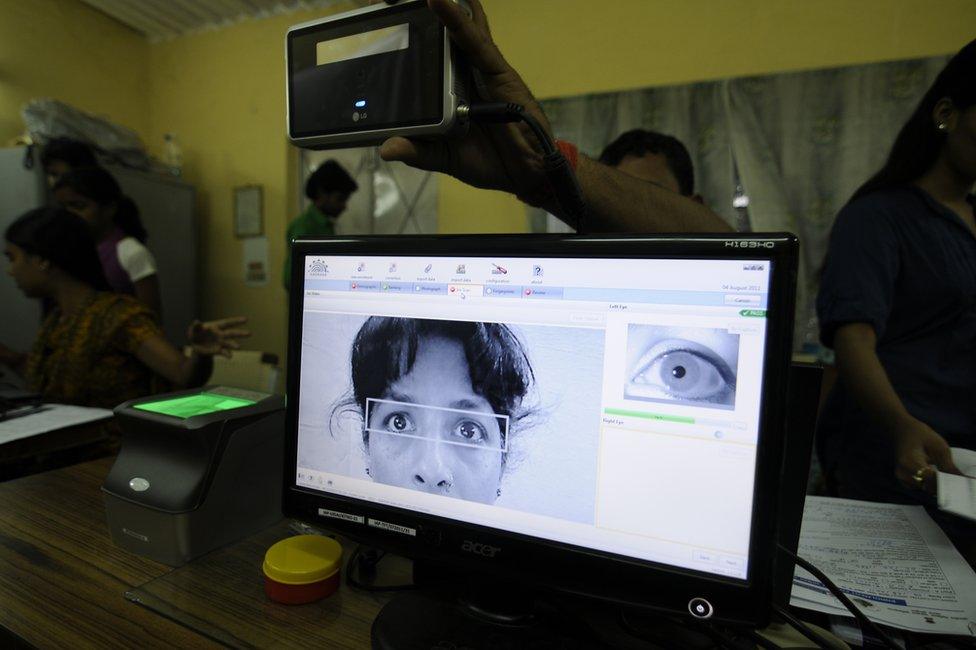India Aadhaar biometric IDs 'not mandatory for tax returns yet'
- Published

The fingerprints and iris scans are stored in high security data centres
India's top court has ruled that a controversial biometric-based personal identification number will not be mandatory to file tax returns yet.
The court said taxpayers who had opted out of getting an Aadhaar (foundation) number should not be forced to get one.
It added that people's tax identification cards, which do not need biometrics, would continue to be legal even if they are not linked to Aadhaar.
The court said the government must do more to allay data theft fears.
It was hearing petitions against the government's plan to effectively replace tax identification cards, know as PAN (Permanent Account Number) cards, with Aadhaar.
In its ruling, the court said that those who had an Aadhaar card had to link it to their PAN card, but those who did not could still file tax returns. It declared a stay on full implementation of the government's policy until a constitutional court rules on privacy issues related to the card.
Aadhaar: Are a billion identities at risk?
The government says PAN cards are easy to fake.
"Today, anybody can get a PAN card with any name on it. A person can get several PAN cards - say, as Mukesh Gupta, then another as Mukesh Kumar Gupta, and a third as M K Gupta, so on and so forth," the Indian Express, external quotes Attorney General Mukul Rohatgi as saying.
But the petitioners say the government cannot forcibly take people's biometric details. Activists have also raised concerns over the security of what can be described as the world's biggest biometric database.
Over the past eight years, the government has collected fingerprints and iris scans from more than a billion residents - or nearly 90% of the population - and stored them in a high security data centre.
In return, each person has been provided with a randomly generated, unique 12-digit identity number.
The government has been using Aadhaar to transfer government pensions, scholarships, wages for a landmark rural jobs-for-work scheme and benefits for cooking fuel to target recipients, as well as to distribute cheap food to the poor.
It says Aadhaar can be used as a tool to fight corruption because it makes it hard for people to create fake IDs in order to claim benefits.
But there have already been a number of leaks of details of students, pensioners and recipients of welfare benefits involving a dozen government websites.
- Published4 May 2017